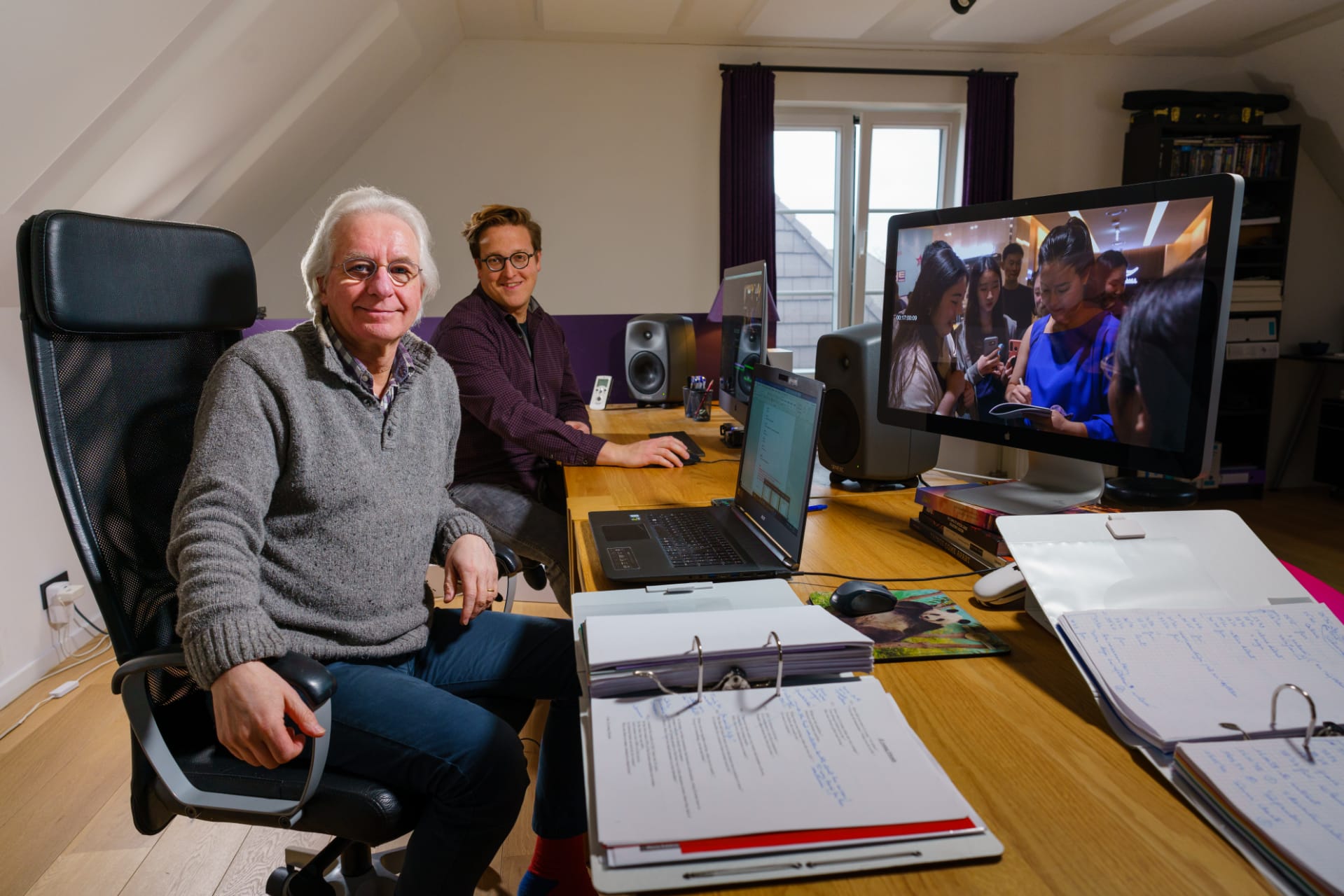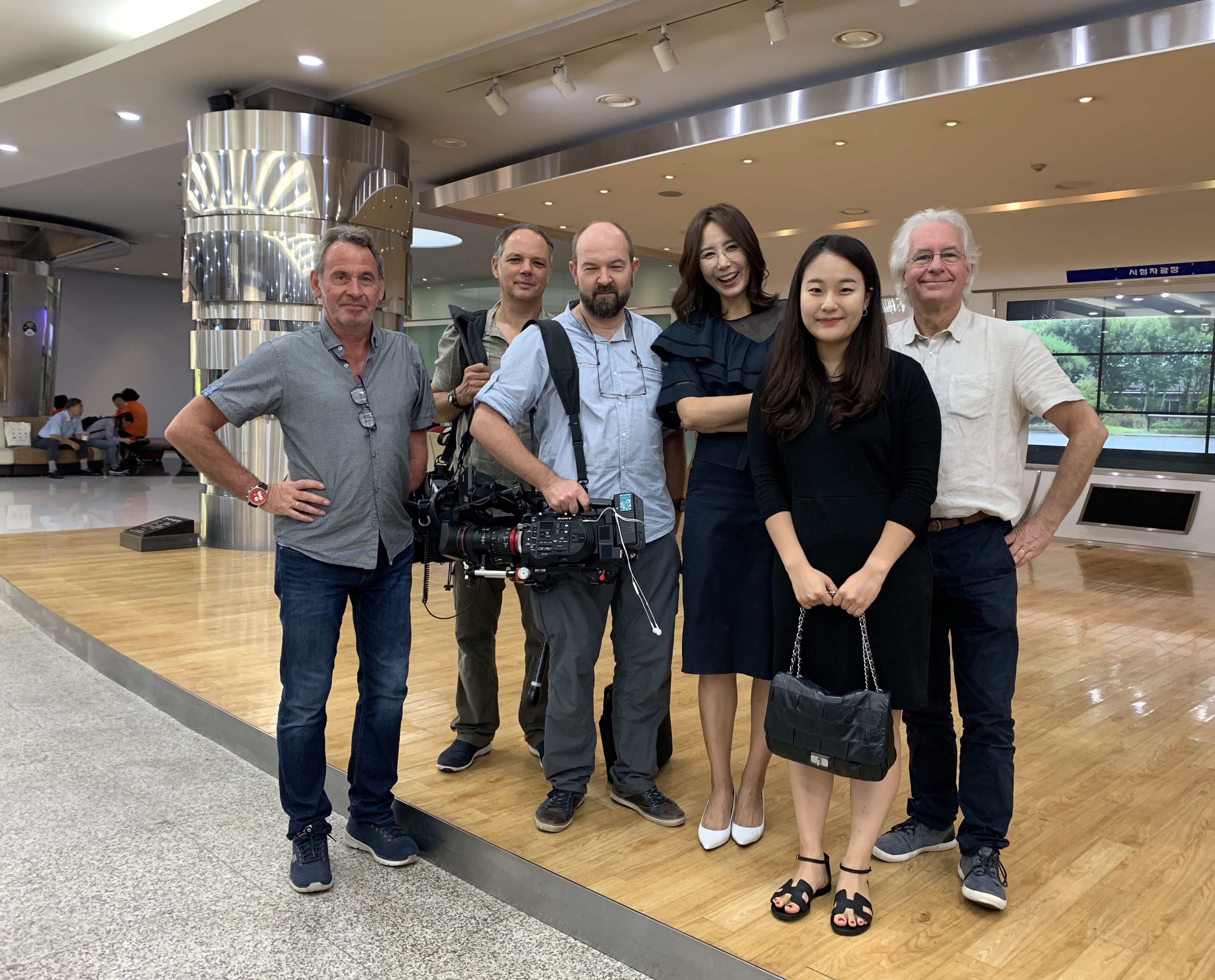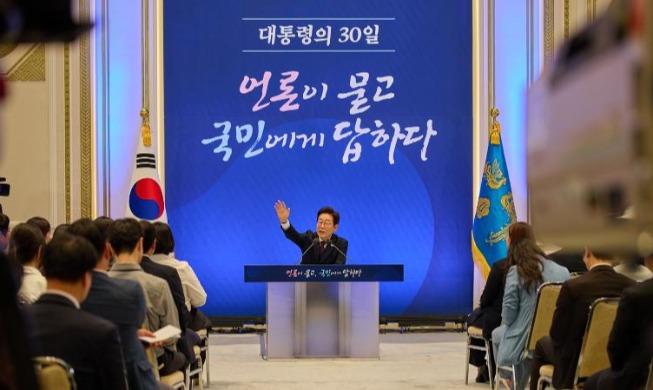- 한국어
- English
- 日本語
- 中文
- العربية
- Español
- Français
- Deutsch
- Pусский
- Tiếng Việt
- Indonesian
By Honorary Reporter Viviane Vaz from Belgium
Photo = Thierry Loreau
The just-released Belgian documentary "K-Classics Generation" explores how young Korean musicians are winning a slew of international music competitions, as well as tracing the careers of Korean soprano Sumi Hwang and violinist Lim Ji-young, two recent winners of Belgium's prestigious Queen Elisabeth Competition.
The premiere was held on Sept. 17 at the government building of the Belgian municipality of Woluwe-Saint-Pierre in collaboration with Gangnam-gu District Office of Seoul. Due to COVID-19, the event was reorganized with limited seats.
The film will be aired on Oct. 2 on the Belgian public broadcaster RTBF and on Oct. 11 through the French-German channel ARTE. "K-Classics Generation" was produced with the support of RTBF, the Belgian media company Media Res, the Korean Cultural Center in Brussels, and the Korean Culture and Information Service (KOCIS), and will also be screened in Korea later this year.

Co-directors Thierry Loreau (left) and Pierre Barre (Thierry Loreau)
"K-Classics Generation" is the second film on the topic by co-directors Thierry Loreau and Pierre Barre; their first was 2012's "The Korean Musical Mystery." Both sought to find out why many young Koreans were competing in classical music competitions in Belgium and around the world.
"Now they're not only participating but taking a lot of the prizes," Loreau said. In 20 years, 700 Koreans have made the finals with 110 of them claiming first prize.
Before working as a TV producer at RTBF, Loreau played the oboe but today, he is focusing on telling the stories of other musicians instead of playing. He was also one of 12 people KOCIS honored this year for promoting Korean culture abroad and raising Korea's international image.
In this interview, he discusses his newest film and his perception of Koreans.
How did the love story between you and Korea begin?
Since 1996, I've filmed the Queen Elisabeth Competition for television. In the beginning, there were no Korean competitors but more appeared little by little. 2009 saw five Koreans in the finals and four in 2010. In 2011, the competition saw its first Korean winner. I was drawn to their world because no one knew how to explain it, so I decided to make a film to find out why. And I realized that Koreans are an extraordinary, kind, sincere and welcoming people.
What has changed over the eight years since your first film debuted? Why did you make a sequel?
The first film asked why so many Koreans make the finals of the Queen Elisabeth Competition, including 25% of all contestants in the first round. It was more of a technical film, a kind of investigation and a bit like news but still more beautiful than news. I wanted to do a sequel because since 2012, Korean musicians have won so many international competitions instead of just being overrepresented in them.

The Belgian production team poses with the film's Korean interviewees. From left to right are co-director Pierre Barre, Jean-Luc Fichefet, Didier Hill-Derive, journalist Shin Yoon-joo, violin virtuoso Lim Ji-young and co-director Thierry Loreau
Why are young Korean musicians winning so much?
This new generation in Korea has embraced globalization and nationality is less important now. Young people travel all the time, study in the U.S. or Germany, move around and lack a style like a Russian or French school. Now it's mostly a question of personal investment or work. And when Koreans are passionate about something, they give it their all. Thanks to that, they now win a lot of international competitions.
The global center of classical music is shifting to the Far East, not only Korea but also Japan and soon China. Last year, 70% of the violin contestants at the Queen Elisabeth Competition were Asian. Twenty percent were Americans and Canadians, but they were mostly of Korean and Chinese descent.
Why does this generation in Korea like classical music?
First, it's young people's music to them. Successful classical musicians who've won competitions are symbols of success, and this is very important to them because it makes their families and even their country happy. So other young people see these virtuosos and want to emulate them. Second, as seen in the sequel, young Koreans find classical music romantic and exotic and favoring their imaginations, dreams, fantasies and emotions. Koreans can be very expressive through emotions on stage and give it everything they have. Classical music is something they can pour their emotions into. And third, traditional Korean music is not exported, so these musicians think they'll be more successful if they study music not from home.
How would you define this generation of Korean classical musicians?
This really is a generation, it's not going to suddenly end. The musicians are also supported by their government and good schools. The Korean government in the 1990s decided to invest a lot of budget in education and culture. I don't know of any other country that has done this. And this latest film also highlights the notion of sacrifice, as these children give up their youth, energy, time, friends and family, otherwise success will never happen.
A Korean mother sacrifices her professional career to care for her child full time, and a father also sacrifices by working until 2 a.m. to cover most of the costs. Without a family cocoon that pushes students forward, starting a career and reaching the top are extremely difficult. That's why I also interviewed the parents. For them, their children's success is theirs, too.
enny0611@korea.kr
*This article is written by a Korea.net Honorary Reporter. Our group of Honorary Reporters are from all around the world, and they share with Korea.net their love and passion for all things Korean.
